Afternoon Light
Welcome to the Afternoon Light Podcast, a captivating journey into the heart of Australia’s political history and enduring values. Presented by the Robert Menzies Institute, a prime ministerial library and museum, this podcast illuminates the remarkable legacy of Sir Robert Menzies, Australia’s longest-serving prime minister. Dive into the rich tapestry of Menzies’s contemporary impact as we explore his profound contributions on the Afternoon Light Podcast. Join us as we delve into his unyielding commitment to equality, boundless opportunity, and unwavering entrepreneurial spirit. Our engaging discussions bring to life the relevance of Menzies’s values in today’s world, inspiring us to uphold his principles for a brighter future. Ready to embark on this enlightening journey? Experience the Afternoon Light Podcast now! Tune in to explore the past, engage with the present, and shape a better tomorrow by learning from the visionary leadership of Sir Robert Menzies. Stay connected by signing up on the Robert Menzies Institute website: https://www.robertmenziesinstitute.org.au/. Have an opinion? Email your comments to: info@robertmenziesinstitute.org.au.
Episodes
Wednesday Dec 14, 2022
Wednesday Dec 14, 2022
Long time Country Party Leader Earle Page was possibly the most important side character in Australian political history. He engineered the fall of Billy Hughes, won a coalition on generous terms that has shaped the centre-right of politics ever since, and served as second in command for the aptly named Bruce-Page Government and also for much of the Lyons Ministry. But he was also a man of vision, holding a profound belief in developmentalism, who was always on the lookout for the ‘psychological moment’ when political circumstances would suit putting his plans into action. He did not always judge such moments correctly, and his infamous attack on Menzies in 1939 spelled the end of his hold on the Country Party leadership. Nevertheless, the two men had a frosty reconciliation, and Page became an important reforming Health Minister in the Menzies Government before losing his seat and shortly afterwards his life at the nail-biting 1961 election. In this week’s episode of the Afternoon Light podcast, Robert Menzies Institute CEO Georgina Downer talks to Stephen Wilks from the ANU’s National Centre of Biography, who is the author of the first full length examination of Earle Page’s remarkable life and career.
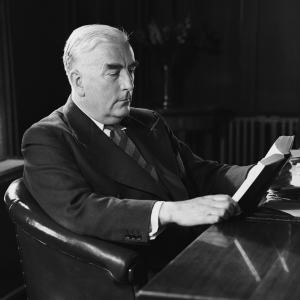
Wednesday Dec 07, 2022
Wednesday Dec 07, 2022
One of the main reasons that the Robert Menzies Institute has been set up at the University of Melbourne, beyond the fact that Menzies was both a student and chancellor of the institution, is that he bequeathed the university his personal library of over 4000 books. Housed in the Leigh Scott Room in the Baillieu Library, the collection is a cultural artefact that reveals insights into who Menzies knew, what he read, and what engaged his mind. A remarkable time capsule of twentieth century Australia, it is a great resource for historians and its treasures serve as the basis for the RMI’s museum exhibition housed in the Old Quad. In this week’s episode of the Afternoon Light podcast, Robert Menzies Institute CEO Georgina Downer explores the collection with William Cook, our Curatorial Assistant who has spent over a year cataloguing Menzies’s books.
Wednesday Nov 30, 2022
Wednesday Nov 30, 2022
John Curtin and Robert Menzies remain arguably the most revered prime ministers on their respective sides of Australian politics. The two men shared a mutual respect for one another, and a sense of cordiality that crossed party lines, even if that was severely tested by Eddie Ward’s ‘Brisbane Line’ fabrication. As two prime ministers who shared the burden of leading the nation through its greatest test, Curtin has tended to receive more credit for Australia’s success in World War Two, but for that effort he would pay the ultimate price. In this week’s episode of the Afternoon Light podcast, Robert Menzies Institute CEO Georgina Downer talks to Associate Professor David Lee from UNSW Canberra, who is the author of a new biographical monograph on Labor icon John Curtin.
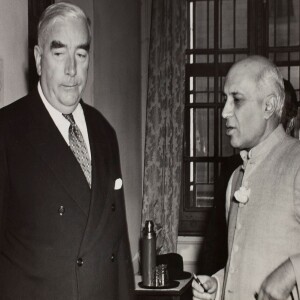
Wednesday Nov 23, 2022
Wednesday Nov 23, 2022
Australia’s relationship with India has been slow to prosper. For all our cultural ties and mutual love of cricket, until recently the shared legacy of Empire tended to stunt rather than facilitate the two nations coming to understand each other. These issues were epitomised by the relationship between Menzies and Nehru, two record-setting leaders who could bond over a love of parliamentary democracy, but who otherwise viewed the world through very different eyes. With the advent of the Quad, and the recent blossoming of a new-found strategic alignment, it is worth looking back on just how far we have come. In this week’s episode of the Afternoon Light podcast, Robert Menzies Institute CEO Georgina Downer talks to Dr Meg Gurry about the rocky road of the Australia-India relationship.

Wednesday Nov 16, 2022
Wednesday Nov 16, 2022
It is little remembered that in the race to produce the world’s first nuclear weapon, Britain took an early lead before changing tact to focus on assisting America’s efforts. In the immediate aftermath of World War Two, the United States shut off their wartime ally from access to the technology they had helped to create, and the United Kingdom was forced to lean on the Commonwealth to become a nuclear power. After being rebuffed by Canada, Britain settled on Australia as the site for a large number of tests that would have devastating consequences for Indigenous Australians and the environment, which were little explored by a compliant government, opposition and media captivated by the immediate imperatives of the Cold War. In this week’s episode of the Afternoon Light podcast, Robert Menzies Institute CEO Georgina Downer talks to Elizabeth Tynan, author of several books exploring Australia’s nuclear past and its ongoing legacy.
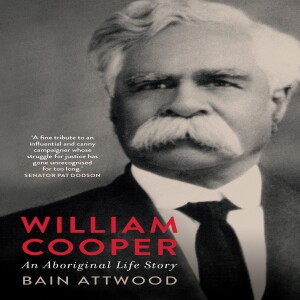
Wednesday Nov 09, 2022
Wednesday Nov 09, 2022
William Cooper was a pioneering Indigenous activist, notable for his famous petition to King George VI for an Aboriginal representative in the Australian parliament, his call for a day of mourning after 150 years of colonisation, the walk-off of the Yorta Yorta people from Cummeragunja reserve in 1939, and his opposition to the establishment of an Aboriginal regiment in the Second World War. In his later years Cooper wrote several letters lobbying for change from Prime Minister Robert Menzies, who was then preoccupied in directing Australia’s war-effort. While Cooper achieved only limited cut-through in his lifetime, he laid the foundation for many to follow in his footsteps. In this week’s episode of the Afternoon Light podcast, Robert Menzies Institute CEO Georgina Downer discusses William Cooper with the author of An Aboriginal Life Story Professor Bain Attwood.
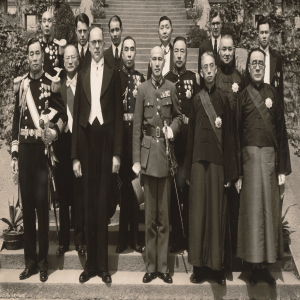
Wednesday Nov 02, 2022
Wednesday Nov 02, 2022
Australia’s relationship with China has always been fraught with both difficulty and opportunity. It was Menzies who established Australia’s first diplomatic mission to China during World War Two, and he had a lot of sympathy for the beleaguered ally that was the Chinese Nationalist Government. It was subsequently quite disheartening to see them defeated in the Chinese Civil War, but the Menzies Government’s attitude towards recognising the victorious Communist regime was far more nuanced than is generally assumed and he was actively conciliatory over the Taiwan Straight Crisis. Such nuance, combined with caution, is a necessary part of any dealings with China, as our present difficulties serve as just the latest chapter in a complex story. In this week’s episode of the Afternoon Light podcast, Robert Menzies Institute CEO Georgina Downer talks to Professor James Curran about his new book Australia’s China Odyssey: From Euphoria to Fear.
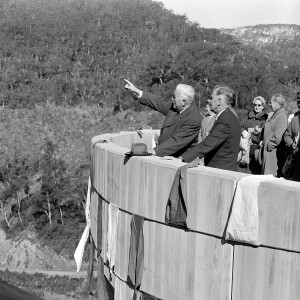
Wednesday Oct 26, 2022
Wednesday Oct 26, 2022
One of the defining features of the Menzies era was a long economic boom where, apart from the occasional short hiccup, growth remained high while inflation and unemployment remained low. The eternal debate is to what extent did the Menzies Government facilitate this prosperity? While Menzies maintained a significant role for the state and the levers of Keynesian economic control that were already in place, there is no doubt that his anti-socialist vision contrasted with his predecessor who not only tried to nationalise the banks but also tried to expand the Commonwealth’s constitutional powers to organise marketing, dictate industrial employment, and even to control rents and prices. In this context, and combined with Menzies’s rapid push to abandon wartime controls and rationing, and also to open the door to foreign investment, there is strong case to be made that his government gave the economy the freedom to flourish, at least by a comparative standard. In this week’s episode of the Afternoon Light podcast, Robert Menzies Institute CEO Georgina Downer talks to Professor of Economics Jonathan Pincus, who picks apart the details of Menzies’s economic miracle.
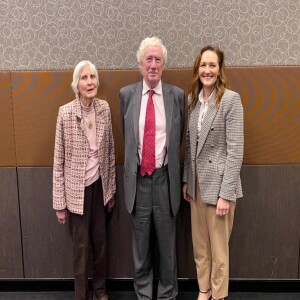
Wednesday Oct 19, 2022
Wednesday Oct 19, 2022
During the month of October, the Robert Menzies Institute has been very proud to host former Justice of the Supreme Court of the United Kingdom Lord Jonathan Sumption on a tour of Australia in which he has captivated audiences with a number of prominent speaking engagements, most notably the RMI Oration and Gala. Sumption’s views on the pivotal importance of the rule of law and the precarious future of modern democracy closely echo concerns expressed by Sir Robert Menzies, who himself was very close to becoming a Justice of the High Court of Australia. In this week’s very special episode of the Afternoon Light Podcast, Robert Menzies Institute CEO Georgina Downer talks to Lord Sumption about a number of vital issues, including responses to the Covid pandemic, Brexit, and the manner in which the lessons of history can help inform modern decision makers.
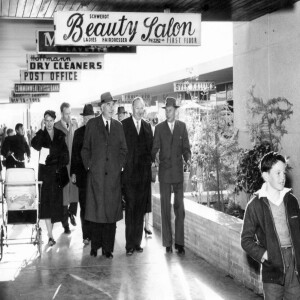
Wednesday Oct 12, 2022
Wednesday Oct 12, 2022
Robert Menzies holds the record as Australia's longest serving prime minister, but he is certainly not Australia's longest serving ‘democratically’ elected political leader. That record is held by Thomas Playford, who was Premier of South Australia for an astonishing period from 1938 until 1965. This period corresponded with both of Menzies’s stints as prime minister, and the Federal leader had a complicated relationship with the State’s unconventional non-Labor government. Playford was always determined to extract whatever he could out of the Commonwealth, and Menzies was often forced to oblige. South Australia serves as a fascinating case study into how Australian political parties remain highly federalised, with each division having its own unique story and distinctive characteristics. In this week’s episode of the Afternoon Light podcast, Robert Menzies Institute CEO Georgina Downer talks to Clement Macintyre about South Australia’s unique political history and how it relates to the Menzies era.









